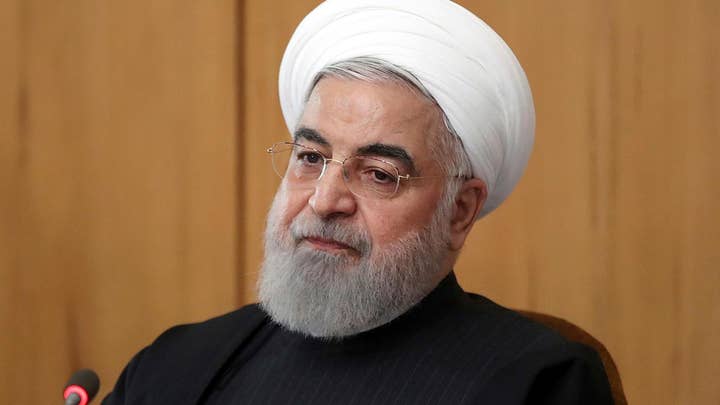President Trump prepares for State of the Union amid impeachment trial
The 2020 State of the Union will be only the second time in U.S. history where an impeached president will give a State of the Union address. President Trump is scheduled to address the nation and Congress on Feb. 4, 2020.
For President Trump, 2020 is shaping up to be a critical year as the United States barrels toward a contentious general election in November as Americans decide whether or not they want four more years of his administration.
While Trump has touted a booming economy and low unemployment figures, his 2020 has already been marred by slumping poll numbers, an ongoing impeachment trial, attacks from his Democratic rivals on the campaign trail and combative relations with foreign powers.
Below is a look at some of the challenges facing the Trump administration as the clock ticks down toward Election Day 2020:
Economy
The surging U.S. economy has been one of Trump’s main talking points when stumping for his reelection – touting low unemployment figures across the board, job creation and promising economic growth numbers. There is the saying that Americans vote with their wallets and, if that’s the case, Trump’s hopes of reelection are looking good.
But there appear to be storm clouds on the horizon that he will have to deal with in the coming months – namely a recent slowing of economic growth and a continually growing national deficit. According to a report released last week by the Bureau of Economic Analysis (BEA), the U.S. economy grew only 2.3 percent in 2019 – the weakest pace of Trump’s presidency. The slowing of economic growth was mainly caused by a global turndown and worsened by Trump’s trade war with China. Good news for the White House is that government spending helped stave off an even steeper decline.
The Congressional Budget Office last month also announced that the budget deficit is slated to soar above $1 trillion this year and could soar to $1.3 trillion per year for the next decade.
The surge has in part been blamed on the passage of the 2017 Trump tax bill, which has failed to pay for itself with additional economic growth and revenues as promised by administration figures like Treasury Secretary Steven Mnuchin.
Foreign Policy
While the recent trade with China and the passage of the USMCA has eased tensions with Beijing and the U.S.’s closest neighbors in Canada and Mexico, the Trump administration is still in a contentious relationship with a number of other nations around the globe.
Trump’s criticism of European spending – or lack thereof – on NATO and their reluctance to house imprisoned terrorists along with the U.S. pulling out of a number of international deals like the Iranian nuclear deal and the Paris Climate Accord has not made him many friends within the EU. Vladimir Putin and Russia have been less than secretive about Moscow’s plans to once again interfere with U.S. elections, and North Korea still remains an unhinged threat.
The White House will also have to try to convince the Palestinians to sign on to the recently announced Middle East peace plan. Israel – no matter who is running the country following the March elections – has agreed to the plan, but Palestinian leaders have so far given Trump little hope that they will come aboard.
Then there is Iran. Tensions have drastically escalated between Washington and Tehran over the last month with the U.S. just last Thursday issuing new sanctions targeting the head of Iran's nuclear program and the agency he directs. Bad blood between the U.S. and Iran has been rising since the Jan. 3 U.S. drone strike that killed a top Iranian general in Iraq.
Border and Immigration
Cracking down on immigrants illegally entering the U.S. and constructing a wall along the southern border with Mexico were two of Trump’s key issues during the 2016 election and are things that he has been pushing for since his inauguration. While he’s made progress on the border wall and cracking down on immigration, his hardline policies have faced fierce resistance from House Democrats and it’s unlikely that anything will change in the near future.
Impeachment fallout and 2020 election
The House voted in December to impeach Trump and the first month of 2020 has been dominated by the trial. The Senate, a day after the State of the Union, is widely expected to vote on whether to remove Trump from office.
While there is little chance that the Republican-controlled Senate votes to remove him from office, Trump will still have to deal with the fallout from impeachment and nagging questions about the charges over his dealings with Ukraine brought against him as he campaigns for reelection.









